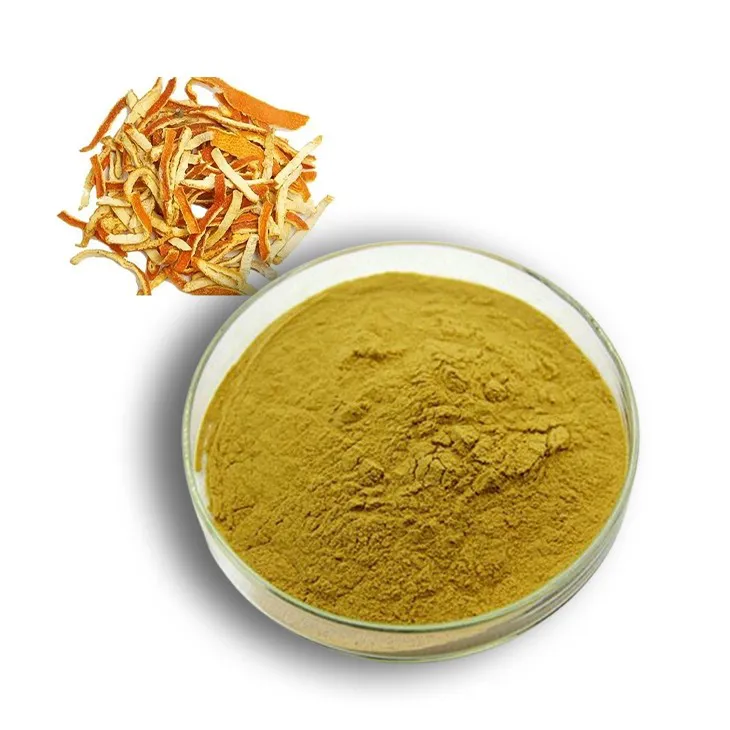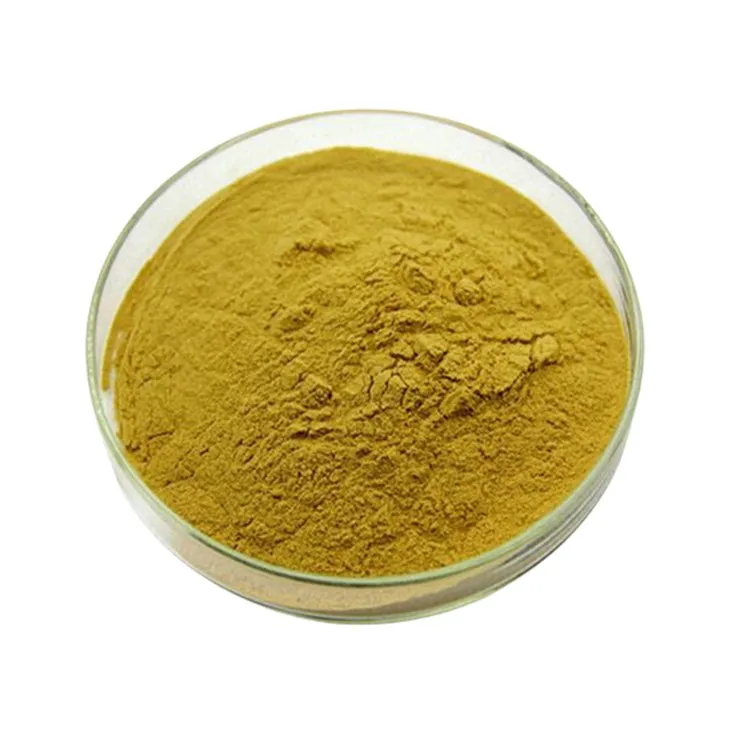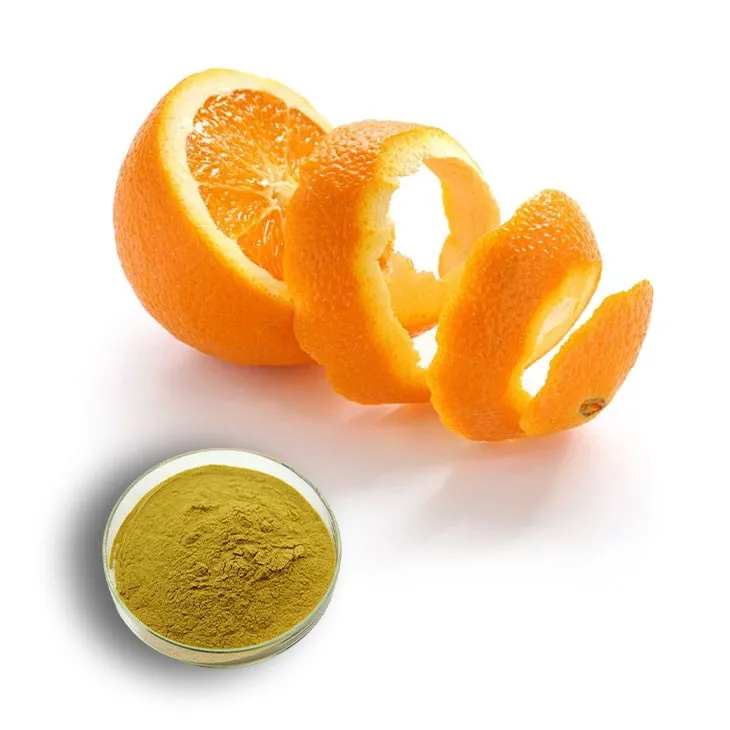- 0086-571-85302990
- sales@greenskybio.com
Hesperidin in Medicine: Exploring Its Therapeutic Uses and Benefits
2025-09-25

As medical science delves deeper into the realm of natural compounds, Hesperidin, a bioflavonoid found predominantly in citrus fruits, emerges as a compound of interest due to its potential therapeutic applications. Derived from the peel and pulp of oranges, lemons, and other citrus varieties, Hesperidin offers a range of health-promoting effects that have garnered the attention of researchers and clinicians alike. This article explores the multifaceted uses of Hesperidin in medicine, highlighting its pharmacological benefits, mechanisms of action, and emerging research findings.
Understanding Hesperidin
Hesperidin is classified as a flavonoid, a type of polyphenolic compound known for its antioxidant properties. It is particularly abundant in citrus fruits, where it contributes to their vibrant coloration and defensive mechanisms. As a bioactive compound, hesperidin often works synergistically with other flavonoids, such as Diosmin and rutin, amplifying its impact on health.
Hesperidin's significance in medicine is largely attributed to its ability to exert a variety of biological effects, including antioxidant, anti-inflammatory, antimicrobial, and vasoprotective activities. These effects make it valuable in the prevention, management, and treatment of numerous health conditions.

Hesperidin's Therapeutic Applications
1. Cardiovascular Health
One of the most notable applications of hesperidin in medicine is its role in supporting cardiovascular health. Hesperidin possesses vasoprotective properties, which can contribute to the maintenance of healthy blood vessel function. Research indicates that hesperidin may help lower blood pressure and improve endothelial function. By enhancing nitric oxide bioavailability, hesperidin promotes vasodilation, reducing arterial stiffness and supporting optimal circulation.
Moreover, hesperidin exhibits lipid-lowering effects by decreasing low-density lipoprotein (LDL) cholesterol, commonly referred to as "bad" cholesterol. These cardiovascular benefits collectively reduce the risk of atherosclerosis, heart disease, and stroke.
2. Anti-Inflammatory Properties
Chronic inflammation is a key contributor to the development of various diseases, including arthritis, diabetes, and neurodegenerative disorders. Hesperidin's anti-inflammatory properties have piqued interest in its potential use as a therapeutic agent for managing inflammatory conditions.
Hesperidin has been found to inhibit the activation of pro-inflammatory cytokines and suppress the expression of inflammatory enzymes like cyclooxygenase-2 (COX-2). These actions help in mitigating inflammatory responses and reducing symptoms associated with chronic inflammation, such as pain and swelling.
3. Antioxidant Activity
As a powerful antioxidant, hesperidin offers protection against oxidative stress, which is implicated in the aging process and numerous chronic diseases. Oxidative stress results from an imbalance between free radicals and antioxidants, leading to cellular damage.
Hesperidin's ability to neutralize free radicals contributes to cellular protection, minimizing the risk of conditions such as cancer, heart disease, and neurodegenerative disorders. Its antioxidant activity also extends to protecting skin health, reducing photoaging effects caused by UV exposure.
4. Venous Insufficiency and Varicose Veins
Hesperidin's vasoprotective and anti-inflammatory properties make it beneficial for addressing conditions related to venous insufficiency, including varicose veins and hemorrhoids. In combination with Diosmin, hesperidin is used in oral formulations to improve venous tone, reduce venous capacity, and strengthen vein walls.
This therapeutic application is particularly valuable for individuals struggling with chronic venous insufficiency and the discomfort it entails. By enhancing blood flow and reducing inflammation, hesperidin contributes to symptom relief and improved quality of life.
5. Neuroprotective Effects
Emerging research suggests potential neuroprotective effects of hesperidin, opening avenues for its use in addressing cognitive decline and neurodegenerative diseases. Hesperidin's antioxidant and anti-inflammatory actions contribute to protection against neuronal damage, oxidative stress, and inflammatory processes implicated in conditions such as Alzheimer's and Parkinson's disease.
Animal studies have demonstrated hesperidin's neuroprotective effects through the preservation of cognitive function and prevention of neurologic deficits associated with disease models. While more research is needed, hesperidin represents a promising candidate for neuroprotective strategies.
6. Antimicrobial Potential
Hesperidin's antimicrobial properties contribute to its use in combating infections caused by harmful pathogens. Research indicates that hesperidin exhibits antibacterial, antiviral, and antifungal activities, making it valuable in supporting immune function and addressing microbial challenges.
By inhibiting microbial growth and proliferation, hesperidin can aid in reducing infection risk and promote faster recovery from common infectious diseases.

Safety and Considerations
While hesperidin offers numerous health benefits, it is important to consider potential interactions and individual variations in response to its use:
- Dosage and Supplementation: The therapeutic dosage of hesperidin varies based on specific health conditions. Combining hesperidin with other flavonoids, such as Diosmin, is common practice in supplements and formulations. Consultation with a healthcare provider or nutritionist can ensure appropriate dosage and avoid adverse effects.
- Interactions: Hesperidin may interact with certain medications, particularly those affecting vascular function, cholesterol levels, or inflammation. Caution should be exercised when combining hesperidin supplements with anticoagulants or anti-inflammatory medications.

Conclusion
Hesperidin represents a promising bioflavonoid in medicine, showcasing diverse and impactful therapeutic applications that extend across cardiovascular health, inflammation, oxidative stress, venous insufficiency, neuroprotection, and antimicrobial defenses. As research continues to explore hesperidin's potential, its value as a natural compound in preventive and therapeutic medicine becomes increasingly evident.
Integrating hesperidin into health care strategies, whether through dietary intake of citrus fruits or supplementation, offers a natural path to enhanced health and vitality. With mindfulness regarding dosage, interactions, and individual health considerations, hesperidin can contribute positively to comprehensive wellness endeavors. As with all health-related decisions, consultation with healthcare professionals remains key to maximizing benefits and ensuring informed integration into medical practice.
Green Sky Bio provides the best extracts and supplements. It is a Chinese self-developed brand that is trustworthy! Welcome to email us to inquire about our products.
- ▶ Hesperidin
- ▶ Citrus Bioflavonoids
- ▶ Plant Extract
- ▶ lycopene
- ▶ Diosmin
- ▶ Grape seed extract
- ▶ Sea buckthorn Juice Powder
- ▶ Fruit Juice Powder
- ▶ Hops Extract
- ▶ Artichoke Extract
- ▶ Mushroom extract
- ▶ Astaxanthin
- ▶ Green Tea Extract
- ▶ Curcumin
- ▶ Horse Chestnut Extract
- ▶ Other Product
- ▶ Boswellia Serrata Extract
- ▶ Resveratrol
- ▶ Marigold Extract
- ▶ Grape Leaf Extract
- ▶ New Product
- ▶ Aminolevulinic acid
- ▶ Cranberry Extract
- ▶ Red Yeast Rice
- ▶ Red Wine Extract
-
Saffron Extract Powder
2025-09-25
-
Peppermint Oil
2025-09-25
-
Avocado Extract Powder
2025-09-25
-
Quercetin
2025-09-25
-
Uridine-5'-monophosphate Disodium salt
2025-09-25
-
Calendula Extract
2025-09-25
-
Citrus bioflavonoids
2025-09-25
-
Fig Extract
2025-09-25
-
melatonin extract
2025-09-25
-
Tongkat Ali Extract Powder
2025-09-25





















